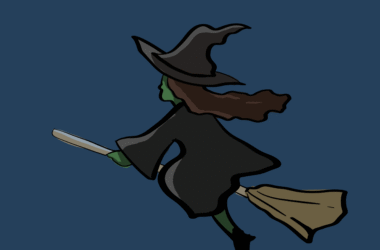Abolish the pop star ad-lib
By Charlotte Hayes, Staff Writer
After discovering Sabriana Carpenter through the song of the summer, “Espresso,” it suddenly dawned on me: A lot of young pop stars love an ad-lib. Singers often tack these cheeky improvised quips onto the beginning or end of a song to show off a little personality. For Carpenter, ad-libbing at the end of her hit song “Nonsense” helped the track go viral months after its release. Olivia Rodrigo also makes liberal use of them, with ad-libs appearing on songs like “brutal” off of 2021’s SOUR and “get him back” off of 2023’s GUTS. Here’s the thing: They’ve got to stop. I’ve heard way too many and I simply don’t care about how funny you thought a line was. It’s less a charming addition than it is an annoyance crowding the space at the end of the song. Sure, it can be fun once in a while, but if everyone starts doing them, it begins to feel manufactured. These ad-libs are an attempt at adding personality that ends up working as a veneer of insincerity, ultimately cheapening the final product.
Téléfrançais! is nightmare fuel
By Kellie Elrick, Arts & Entertainment Editor
I recently re-discovered a relic of my school days: Monsieur Ananas. Téléfrançais, a 1984-1986 French-Canadian children’s show, was once popular viewing in French Immersion classrooms. I remembered a merry pineapple man who sat on a fence and taught me French when my teachers got tired; a talking pineapple seemed well within the bounds of reason, and I remember thinking he was very polite. Upon seeing a clip algorithmically recommended to me, I thought it would be comforting to be transported back to childhood memories in this time of midterms and rain and chaos. But Good Lord! Monsieur Ananas was horrifying. I now saw him for the anthropomorphic, bulgy-eyed, tropical being he always was. I also did not remember that he lived in a junkyard. Or that he had human hands. His sentience distressed me. Sophie and Jacques, the two children, repeatedly insist that “les ananas ne parlent pas,” as Monsieur Ananas slow-blinks and makes gurgling sounds. The skeleton band, Les Squelettes, were mostly as I remembered them, though now, I am unsure of their location in relation to the junkyard. They play their music in a netherworld, against a dark background, but the possessed fruit puppet and the two French children can hear the music. Monsieur Ananas does the splits during the number (he has legs). Distressing as it is, the puppetry holds a certain absurd appeal to me, and I hope that future generations will be able to ride the trip that is Téléfrançais. I only regret that I have not been given the opportunity to use the phrase “les ananas ne parlent pas” more often.
‘Monsters: The Lyle and Erik Menendez Story’ represents everything that true-crime haters hate
By Yusur Al-Sharqi, Managing Editor
Exploitation abounds in true crime media, and Monsters: The Lyle and Erik Menendez Story/ is no exception. The nine-episode season delves into the notorious case of the Menendez brothers who, in 1989, murdered their parents in their Beverly Hills home. The brothers, played by Nicholas Alexander Chavez and Cooper Koch, were sentenced to life in prison after a highly publicized trial in which they argued that years of psychological and physical abuse at the hands of their father, a prominent Hollywood music producer, motivated their actions.Feedback on the show has been overwhelmingly negative and for good reason. While audiences acknowledge the cast’s stellar performances, they feel it can’t compensate for the confused narrative. Furthermore, the brothers and their family members have publicly denounced the show, claiming it is riddled with harmful misinformation and exploits their story. While shedding light on the boys’ trauma is an important step, placing it within a series titled Monsters, especially following a season centred on Jeffrey Dahmer—a serial rapist and killer who inflicted suffering on countless innocent boys and men—marks a serious miscalculation. It doesn’t help that producer Ryan Murphy responded to the criticism by asserting that the brothers should be thankful for the attention his show has given them. He noted that he intended to explore the various theories surrounding the murders rather than deliver a straightforward, factual account of the case, but the approach feels haphazard, resulting in an insensitive, sensationalist, and ultimately unsatisfying series. As scrutiny around the ethics of true crime continues to grow, Murphy cannot escape the backlash—and honestly, I can’t argue with it. This show made me feel disturbed not by its depiction of the crimes, but by the undeniable reality that it was crafted sensationally and without consent, exploiting real trauma for entertainment’s sake.







